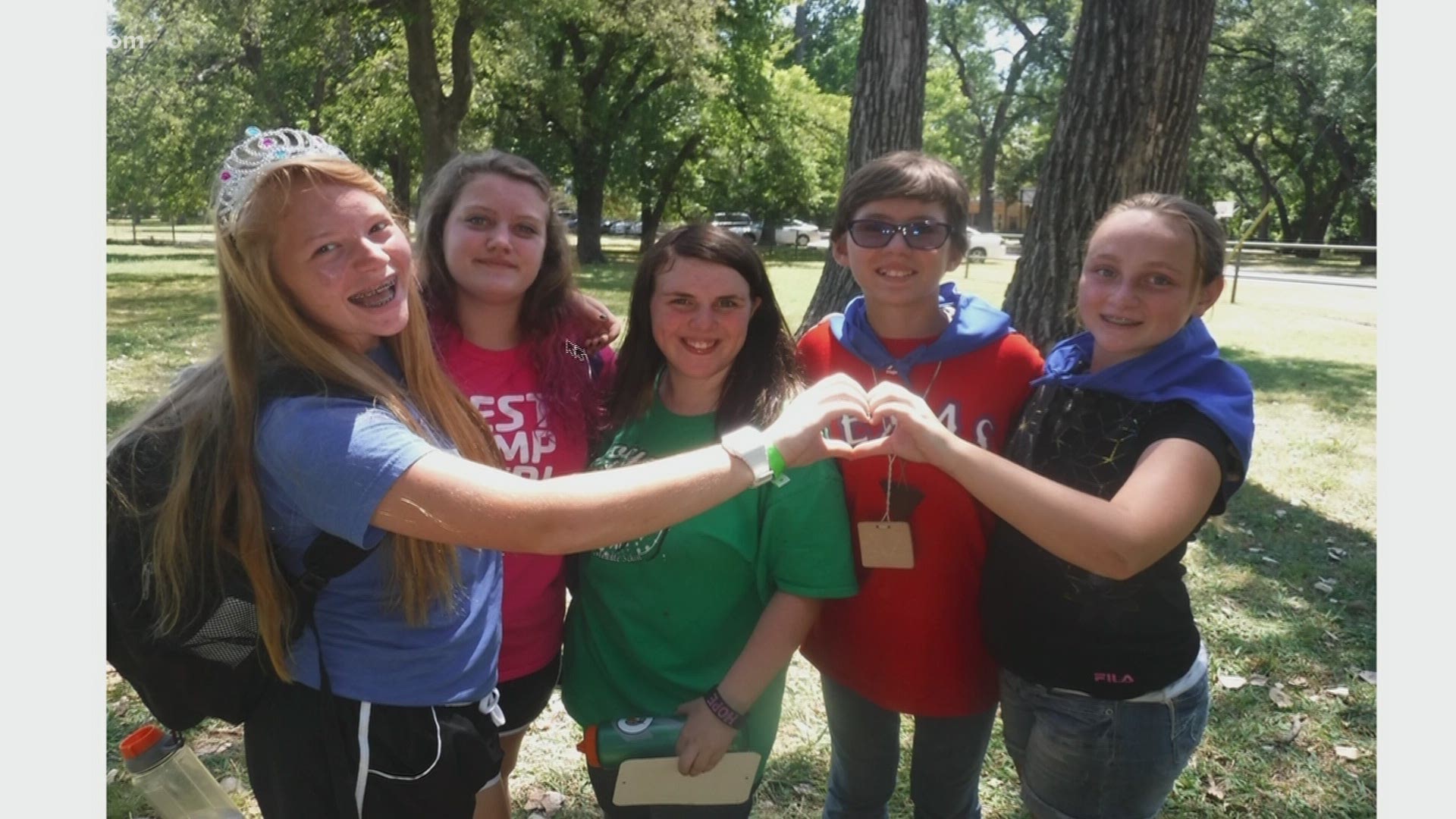Only recently did Governor Greg Abbot issue new guidelines allowing for summer camps to reopen for in-person activities. The late notice didn’t give local organizations much time to adjust, forcing many of them to be especially creative with their approach to summer programming.
“Moms don’t usually plan summer camps the week of May 18. We plan and book our summer camps in January and February," Emily Youree, the owner of FortWorthMoms.com, said. "For many moms, we’re kind of starting from scratch and we have a dilemma about what to do.”
Youree may speak for a lot of parents. The coronavirus pandemic has left many scrambling to entertain their kids for the past few months. The idea of now having to plan for a summer is daunting.
“I think the strongest trend is virtual opportunities. Dance classes, music lessons and so forth,” Youree said.
Many groups have had to make lemonade out of lemons, virtually. They’ve taken classes that traditionally would be conducted in person and reshaped them for an online audience.
“Tweaking some things we normally do. We’ll have kids make their own juggling balls this year,” said Lone Star Circus’ Kathy Beazley. “We’re trying to make it a fun and interactive experience all within their social parameters.”
“We want the kids to be safe,” explained Beth Bando Bontley from Stage West. “We want to keep them creatively engaged. We know that we can reach out through online platforms.”
One benefit of virtual classes is an opportunity for more parental engagement. Instead of waiting in the car for their kids' class to finish, mom and dad and the rest of the family can join in.
“We’ve already seen that with some of our classes,” explained Nancy Schaeffer from the Dallas Children’s Theater. “The parents are participating at home. And some parents are telling us they’re really learning some ways to work with their young people in a creative space. And we’re thrilled to be able to do that with them.”
Not all organizations can conduct their summer schedule online. YMCA’s Camp Carter in Fort Worth consulted expert guidelines from groups like the Centers for Disease Control when studying how they could keep their programming intact.
“We’re having to rely on out-of-the box thinking. Everything we’ve known before is completely different,” said Stephanie Captain Williams with Camp Carter. “We still want to be able to offer the same activities. But we have to look at how has that changed and how can we do that even more safely than we have in the past.”
Parents will need that reassurance to feel comfortable sending their kids to an in-person camp or activity. For some, this will be the first time they’ve ventured away from home for months.
“I’m looking first and foremost for safety protocols and the ways that they are going to identify kids that are sick among them,” Youree explained. “What are the screening options? How are they checking temperatures? How are they identifying if kids are becoming sick at camp? Those things are more important to me than what the actual camp is about."
That’s exactly why organizations are being upfront about their plans. They want to make sure parents feel comfortable putting their kids in an environment around other people.
“We have 360 acres out here, so we’ve got lots of outdoor natural space,” said Williams. “We’ll definitely be able to practice social distancing and keep the kids active and outdoors. But it’s definitely going to look different.”
Sifting through all the options can be daunting, but WFAA has created a resource to help local parents and organizations.
WFAA.com/summer is a database of opportunities, including activities and camps for all ages, both online and in person. Organizations can list their offerings. And parents can search for the right fit for their family.
It’s a first step toward finding ways to entertain our kids for the next few months of a summer like no other.

